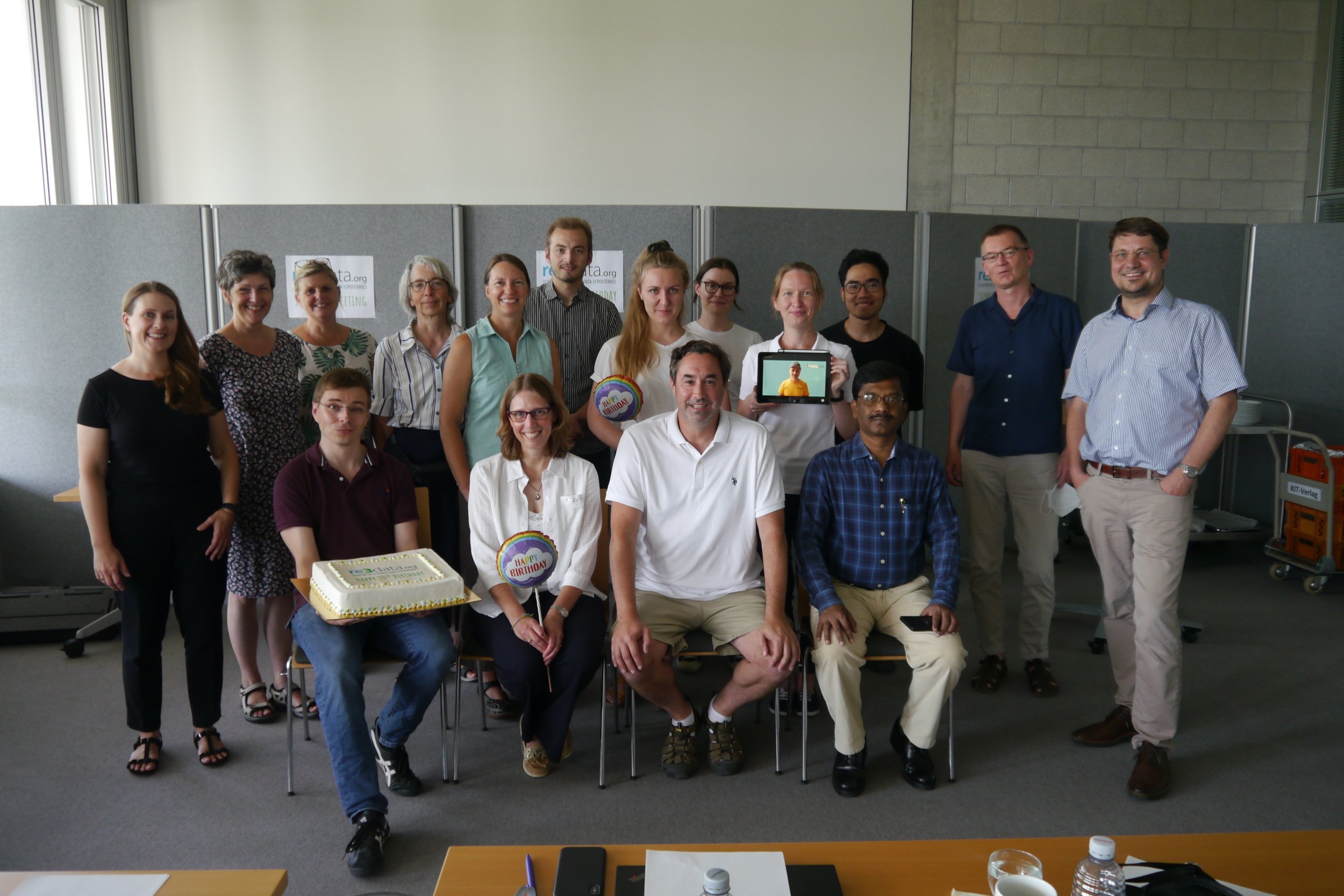In this post, the authors celebrate the 10th anniversary of re3data, sharing insights about the history, the service itself, and how it has developed over the last decade. The post was published simultaneously on the DataCite Blog.
The re3data registry went online in 2012 and is celebrating a decade of curation and making information about data repositories available to the research community.
About ten years ago, two projects – one in the United States and another in Germany – began indexing data repositories and laid the groundwork for what would become the service that we know today. The Berlin School of Library and Information Science at the Humboldt-Universität zu Berlin, the Helmholtz Open Science Office, and the Karlsruhe Institute of Technology (KIT) Library collaborated to develop re3data in Germany, funded by the German Research Foundation (DFG). A similar effort, Databib, was initiated at the Purdue University Libraries in the United States, sponsored by the Institute of Museum and Library Services (IMLS) in the United States. Rather than compete with each other, the two registries joined forces in 2013 and combined their efforts to create an international service that has since been hosted by the KIT.
A comprehensive metadata schema was created and nearly 3,000 research data repositories have been indexed by our dedicated team of editors. For many years, the registry operated as a service of DataCite and supported by the re3data Working Group, a collaboration that continues as the registry has evolved to become a DataCite partner service with an international editorial board that spans the globe and covers every research domain.
Many members of the re3data team had the joyful opportunity to meet in person in July in Karlsruhe to celebrate, share memories, and to look ahead to the future. Of course, there was a great dinner, beer, fellowship, and a birthday cake!

We also engaged in important discussions about future developments for re3data, guided by the principles that we share: collaboration, diversity, utility, trust, and openness. We will continue to strive for inclusivity, representation, and participation across disciplines, languages, geographies, and cultures. In the development of new functionality, we prioritize accessibility and usability for researchers and other users of the registry. re3data should be a trusted, reliable service that maximizes availability and accuracy. Last but not least, we strive to practice and advance open science. To this end, we have always made all records in re3data available for reuse under a CC0 license through an open API with some examples.
Services and organizations that reference re3data or use metadata from the registry include funder recommendations such as from the European Commission and National Science Foundation, guidelines from publishers, resource guides by libraries, and other stakeholders, service providers, and scholars in the research community.
Reaching ten years of service would not have been possible without the sustained contributions and collaboration of all stakeholders involved in re3data – our working group, the international editorial board, our project partners, funders, all of the past and current members of the team, and DataCite!
Finally, a very special thank you goes to everyone who over the years has suggested a new repository to index in re3data or otherwise added new information and value to the registry. New repositories and updates to existing records can be made by using the suggest form on the website.
As we look ahead to the next ten years, we are excited by our current projects, re3data COREF and FAIR-IMPACT, and by the challenges and opportunities that we will encounter in the future. We hope that you will join us in celebrating and looking ahead!
Authors:
- Michael Witt, mwitt@purdue.edu, https://orcid.org/0000-0003-4221-7956
- Nina Weisweiler, nina.weisweiler@os.helmholtz.de, https://orcid.org/0000-0001-6967-9443
- Robert Ulrich, robert.ulrich@kit.edu, https://orcid.org/0000-0001-9063-2703



